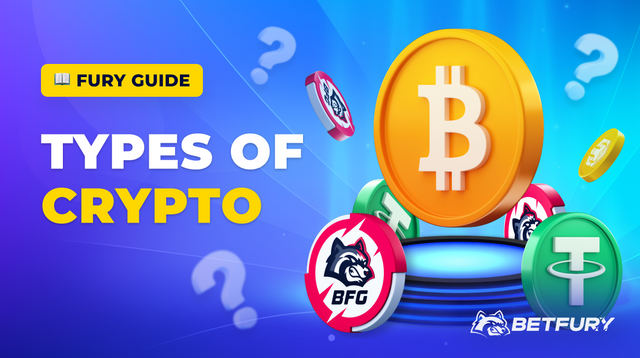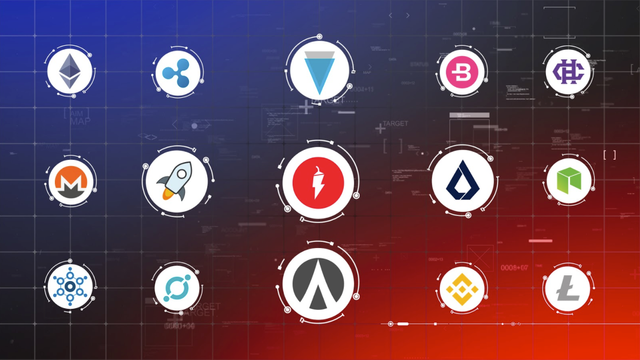Tokens vs. Coins - What's the difference?

Cryptocurrencies are our future, so we need to learn as much as possible about them. Every day, about 100 new cryptocurrencies are born in the world, and each of them has its characteristics. It is impossible to keep track of all, but they can be defined in a class of coins or tokens. The difference between the types of cryptocurrencies can be unclear, which is why we will now analyze everything in detail and put it on the shelves. Get your notebook and pen ready, we're getting to the point!
Coins vs. Tokens
It seems that everyone once asked this question because coins and tokens are so similar. All of them are the younger descendants of Bitcoin. But they have several serious differences, from creation to use.
- Structure differences
Crypto coins are on the native blockchain, and act like fiat (traditional money). Tokens are built on an existing blockchain (not our own). Instead of an exchange of value, tokens are programmable assets through which unique smart contracts are created and executed. These contracts establish ownership of assets even outside the blockchain network. - Complexity of creation
A large part of cryptocurrencies is tokens because they are much easier to create. Speaking in the language of numbers, about 20% is occupied by coins, which shows their importance and insignificant volume in general. - Value differences
As the name implies, crypto coins are a digital version of money that can be used anywhere. Tokens, in turn, denote assets and documents. In simple terms, you own coins, and tokens represent what you own. A token does not have the same liquidity as a coin, and often they represent company shares, and the opportunity to participate in events or gaming entertainment.
Now that you know the difference between coins and tokens, you can take a closer look at them separately. For convenience, we will demonstrate the general separation of types of cryptocurrencies.
%20(1)%20(1).jpg)
Types of Coins
- Bitcoin
The world's first cryptocurrency was invented by Satoshi Nakamoto in 2009. In total, a limit of 21 million Bitcoins was set, and to date, more than 90% of all coins have already been mined. BTC is the most popular and most expensive - its price on the market is now $22 190. After an unprecedented success, many programmers and wealthy investors became interested in crypto, and decided to create their products and use Bitcoin open source technologies to create their blockchains. This is how Altcoins was born. - Altcoins
From the name, it is clear that these are alternative coins to Bitcoin. An interesting fact is that some altcoins were conceived as something that could improve Bitcoin technology. This shows their undoubted proximity to the first cryptocurrency. Although altcoins are built on a similar basic structure, they have many fundamental differences. For example, some altcoins use a completely different process for creating transaction blocks and validating them. Others may implement new features, such as smart contracts, or regulate price volatility altogether.

- Regarding the structure, altcoins also have their native blockchain and are priced quite well in the market. Let's take an example - the well-known Ethereum, which is built on the Ethereum blockchain. This currency is perhaps the main competitor of Bitcoin. Although its price is now about $1 750 for 1 ETH, it is used in Metaverses, to create NFTs and as a currency in the world of new fashionable technologies. Here are some more examples of altcoins: Litecoin, Cardano, Binance Coin, Uniswap, Apecoin, XRP, etc.
- Stablecoins
Stablecoins are a class of coins that have a near-fixed price. Unlike Bitcoin, which is now down over 60% from its $60k peak, stablecoins in the market are very similar to and often associated with real money (dollar, euro, yen). The most striking example is, of course, Tether (USDT), which is linked at the rate to the US dollar, 1 USDT = $1, and can change by a fraction of a percent.
Tokens and their separation
Tokens, as was mentioned earlier, are a representation of some assets, digital funds that are not on the native blockchain. They act as a bridge throughout the crypto world, from tradable assets to other cryptocurrencies! It is easier to create tokens because their code is essentially prescribed for an existing blockchain without changing certain protocols. For simplicity, programmers have even created templates such as Ethereum Waves that make it easy to create your own personal tokens. All this has become possible thanks to the introduction of smart contracts. The figure clearly shows the process of creating tokens:
%20(1)%20(1).png)
- Security tokens
They work like the digital, web3 version of financial securities. The security token is a physical or digital device that provides multi-factor authentication (MFA) to prove identity in a login process. The information used for authentication is divided into three forms: static password, dynamic password and challenge-response (possession proving). There are some examples of security tokens: Mt Pelerin MPS Uniswap, Blockchain Capital BCAP, SPiCE VC SPiCE, and AspenCoin. - NFT
If you are an artist or an art connoisseur, then you will be interested in the existence of non-fungible tokens (NFT). This is a unique asset that cannot be exchanged for another because it is one of a kind. NFTs are transferred from one owner to another using blockchain technology, which creates a digital trail from the seller to the buyer and confirms the transaction. That is, you, while owning the NFT, are collecting something, having ownership of it and a certificate that proves authenticity. Sounds serious, doesn't it? Indeed, imagine that in 2021, the famous NFT collage by Mike Beeple was sold at an auction for $63.9 million! Therefore, it becomes mainstream and represents the new era of digital technology. - Utility tokens
The utility token is a special type of cryptographic asset for garnering the funds that are necessary for cryptocurrency project development. They are used for a specific purpose, for example, in a DApp or online games. This class of tokens is perhaps the most diverse due to the wide range of features and various token utilities. Here are examples of utility tokens: CHZ, GRT, MANA, etc. It is important to note that for example, the BNB coin is a utility token, an in-house cryptocurrency for the giant Binance crypto exchange. This explains that some tokens have their value and can easily be correlated with the crypto coin class.
BFG is BetFury's native token, which is becoming more popular every day. It is built on the BNB chain and is mainly used as an in-game currency. But in addition to fantastic online casino games, the token has a variety of utilities such as staking, mining and others. The price of 1 BFG is currently $0.017. If you love entertainment and think that new technologies should not be boring, you should play 5 000+ amazing games on BetFury and earn as many raccoon tokens as possible!